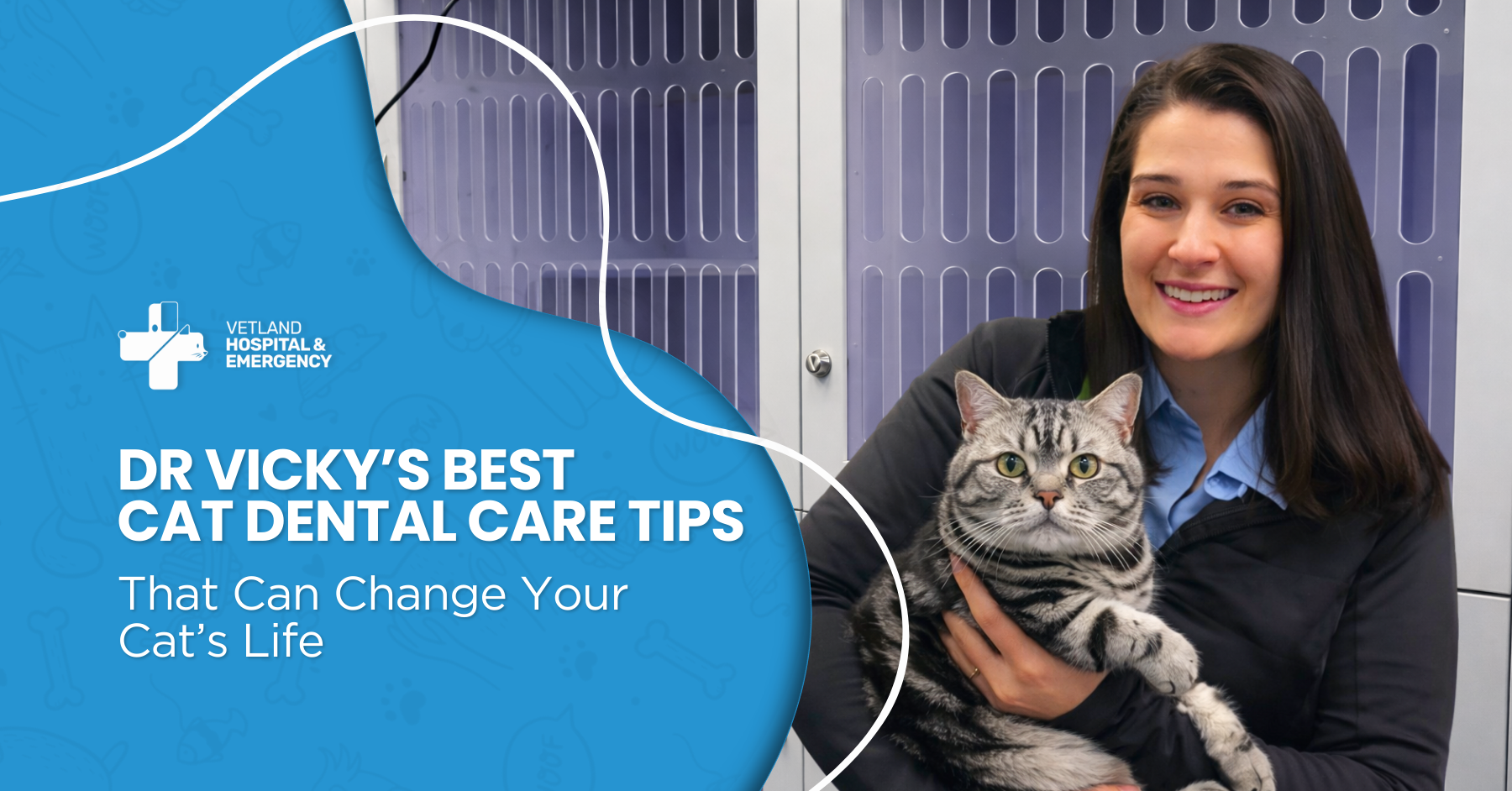Dr Vicky’s Best Cat Dental Care Tips That Can Change Your Cat’s Life
Your cat may be hiding dental pain right now, would you know it? Cat dental care matters for one reason—it hurts.There are no obvious symptoms, but...
2 min read
![]() VetLand Hospital & Emergency
May 15, 2025 5:38:03 PM
VetLand Hospital & Emergency
May 15, 2025 5:38:03 PM
-1.png)
As the cold sets in, we start layering up and curling into cosy corners—but for senior pets, winter brings more than just a chill. Older dogs and cats often face stiff joints, slower movement, and worsening pain.
The good news? A few small changes at home can make a big difference to their comfort, health, and happiness.
As pets age, their ability to regulate body temperature diminishes. Cold weather can aggravate arthritis and other joint issues, especially overnight.
Make sure your senior pet is kept warm with soft, reflective bedding placed away from draughts. Heated rooms, pet jumpers or jackets, and keeping them indoors during freezing nights can greatly improve their comfort.
Avoid hot water bottles, electric blankets, and heating pads. These absolutely can cause burns, especially for pets with poor circulation or thin skin.

As pets age or slow down, they lose muscle mass, making joints less stable and aggravating arthritis. Regular movement helps keep joints lubricated and muscles strong.
Instead of long walks, opt for shorter, frequent strolls to ease stiffness without overloading sore joints.
Hydrotherapy is a great low-impact option during Melbourne’s wet winters. The water’s natural resistance builds muscle without stressing sore joints.
Our underwater treadmill offers a safe, gentle workout that boosts heart health, supports weight control, and reduces pain.
There are also plenty of physiotherapy options that you can do at home to help support muscles in your senior pet. Be sure to ask your vet about in-home options that are available to support your pet.
What your pet eats plays a big role in managing arthritis from the inside out. Nature’s super foods, either whole or as supplements, have been shown to reduce inflammation and support joint health.
In turn, this reduces your pet's reliance on medical therapies.
These are backed by science and commonly recommended by vets. Avoid “miracle cures” and untested supplements.
Always talk to your vet before starting anything new to ensure you’re doing your pet justice with a proven result-based approach.
Loss of muscle, overgrown nails from inactivity and sore joints all make gripping smooth surfaces very challenging for our seniors.
Arthritic pets can easily slip or strain themselves in everyday settings. Sometimes this can even cause disastrous injuries, such as dislocated hips & shoulders.
Adding carpet runners or foam mats to slippery floors and considering pet stairs or ramps for access to beds, couches, or outdoor areas is a fantastic solution. These little changes help them move safely and confidently at home.
One of the most effective changes you can make? Weight management. Excess weight increases pressure on joints, so keeping your pet at a healthy size can significantly ease their pain.
For pets who can’t tolerate medications—or as part of a holistic care plan—laser therapy is a gentle, drug-free solution. It eases inflammation, promotes healing, relaxes sore muscles, and improves comfort.
Treatments are brief, usually under 15 minutes, and painless, and you get to stay with your pet the whole time.
Finally, massage. Talk to your vet about your pet's sore spots and identify muscles that are cramped and uncomfortable. Daily massage at the end of a long day can go a long way in giving your pet the comfort they deserve.
The earlier we address arthritis, the better the long-term outcome. If your pet is showing signs of discomfort, don’t wait!

Don’t let the cold slow your best mate down. Book a check-up to talk about arthritis support, diet, and simple ways to ease their aches this winter.
Whether it’s gentle movement on our hydro treadmill or safe, drug-free pain relief with laser therapy, we’ve got options to help your senior pet feel their best.
Let’s keep them moving, comfortable, and full of life through the colder months.

Your cat may be hiding dental pain right now, would you know it? Cat dental care matters for one reason—it hurts.There are no obvious symptoms, but...

What makes someone choose a career full of uncertainty, constant learning, and never-ending challenges?

Gentle. Precise. Designed for Comfort.